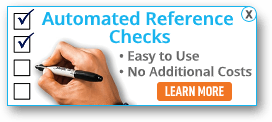About the job
Pharmacist (General)
Dispense drugs prescribed by physicians and other health practitioners and provide information to patients about medications and their use. May advise physicians and other health practitioners on the selection, dosage, interactions, and side effects of medications.
Top activities and tasks for this job:
- Review prescriptions to assure accuracy, to ascertain the needed ingredients, and to evaluate their suitability.
- Updating and Using Relevant Knowledge
- Provide information and advice regarding drug interactions, side effects, dosage, and proper medication storage.
- Working with Computers
- Getting Information
- Maintain records, such as pharmacy files, patient profiles, charge system files, inventories, control records for radioactive nuclei, or registries of poisons, narcotics, or controlled drugs.
- Processing Information
- Work in hospitals or clinics or for Health Management Organizations (HMOs), dispensing prescriptions, serving as a medical team consultant, or specializing in specific drug therapy areas, such as oncology or nuclear pharmacotherapy.
About the test (Full Version)
The Pharmacist (General) Pre-Employment Assessment was designed to help you hire staff in this role. The test provides a whole-person evaluation by measuring job-relevant cognitive ability, personality, knowledge, skills, and relevant behavioral history.
Each component provides important data for hiring decisions. Cognitive ability has been linked to overall job performance in most jobs and correlates with a candidate's
ability to learn new skills and to solve complex problems. Personality characteristics determine how well the candidate will fit-in with a corporate culture. Knowledge and skills indicate how much training will be needed before a new employee becomes productive. Finally, relevant behavioral history detects counter-productive behaviors that can impact job performance.
The Pharmacist (General) test includes an animated work simulation in which candidates meet customers, colleagues and supervisors in a job-related context. Post-test surveys indicate the majority of candidates react favorably to these simulations.
This test also contains an automatically-scored essay component. Writing is a key skill for many jobs and also demonstrates the ability to generate, organize, and communicate relevant ideas effectively.
The specific attributes measured include:
Cognitive Ability
- Analytical Thinking and Attention to Detail
|
|
Knowledge and Skills
- Health Care Administration (US)
- Writing
|
Personality
- Adaptability
- Customer Service Mindset
- Drive
- Integrity
- Resilience
- Teamwork
|
|
Emotional Intelligence
- Empathy and Emotional Self-Control
|
Behavioral History
- History Survey - Performance
- History Survey - Tenure
|
|
|
Following completion, the test produces a Candidate Selection Report that includes an overall score and detailed scores for each attribute. The overall score weighs each of the factors based on research and analysis from the U.S. Government's Occupational Information Network (O*Net). O*Net represents over a decade of dedicated research evaluating the relative importance of various factors that lead to success in almost 1,000 different job roles.
The Candidate Selection Report also provides expert interview questions that help you probe critical or low-scoring areas, along with a guide for noting your evaluation of the candidate's responses. Consistent use of an interview guide is an important part of gaining better candidate insights and making better hiring decisions.
More information about this Job
| Annual US Wages (2023) |
| Bottom 10%: | | $89,980 or less |
| Bottom 25%: | | $125,860 or less |
| Median: | | $136,030 (Average) |
| Top 25%: | | $155,550 or more |
| Top 10%: | | $168,650 or more |
| US Employment Statistics |
| 2023: | | 337,700 |
| 2033 (projected): | | 355,900 |
| Annual U.S. Job Openings: | 14,200 |
Top Knowledge Requirements
- Medicine and Dentistry
- Customer and Personal Service
- Mathematics
- Chemistry
- English Language
- Biology
- Law and Government
- Administration and Management
|
Top Skills
- Reading Comprehension
- Active Listening
- Writing
- Speaking
- Critical Thinking
- Monitoring
- Service Orientation
- Instructing
|
Top Abilities
- Written Comprehension
- Oral Comprehension
- Oral Expression
- Near Vision
- Problem Sensitivity
- Speech Clarity
- Inductive Reasoning
- Deductive Reasoning
|
|
| Education Requirements |
| Bachelor's Degree: | | 10% |
| Post-Baccalaureate Certificate: | | 11% |
| Master's Degree: | | 4% |
| Professional Degree: | | 38% |
| Doctoral Degree: | | 37% |
| This graphic shows the percentage of people in this role who have their highest education in each category. |
| Related Work Experience Requirements |
| None: | | 28% |
| 1 - 3 Months: | | 4% |
| 3 - 6 Months: | | 5% |
| 6 Months - 1 Year: | | 19% |
| 1 - 2 Years: | | 28% |
| 2 - 4 Years: | | 16% |
| This graphic shows the percentage of people in this role whose related work experience before they entered this position falls into each category. |
Alternate Titles for this Role: Apothecary, Clinical Pharmacist, Doctor of Pharmacy, Druggist, Hospital Pharmacist, Industrial Pharmacist, Pharmacist, Pharmacist in Charge (PIC), Pharmacy Consultant, Pharmacy Informaticist, Prescriptionist, Radiopharmacist, Registered Pharmacist, Retail Pharmacist, Staff Pharmacist
Related Jobs based on Skills & Abilities: Family Medicine Physicians, Nurse Practitioners, General Internal Medicine Physicians, Physician Assistants, Clinical Nurse Specialists, Allergists and Immunologists, Pediatricians, General, Preventive Medicine Physicians, Hospitalists, Pharmacy Technicians, Pharmacy Aides, Registered Nurses, Licensed Practical and Licensed Vocational Nurses, Medical Assistants, Anesthesiologists, Naturopathic Physicians, Nurse Anesthetists, Obstetricians and Gynecologists
